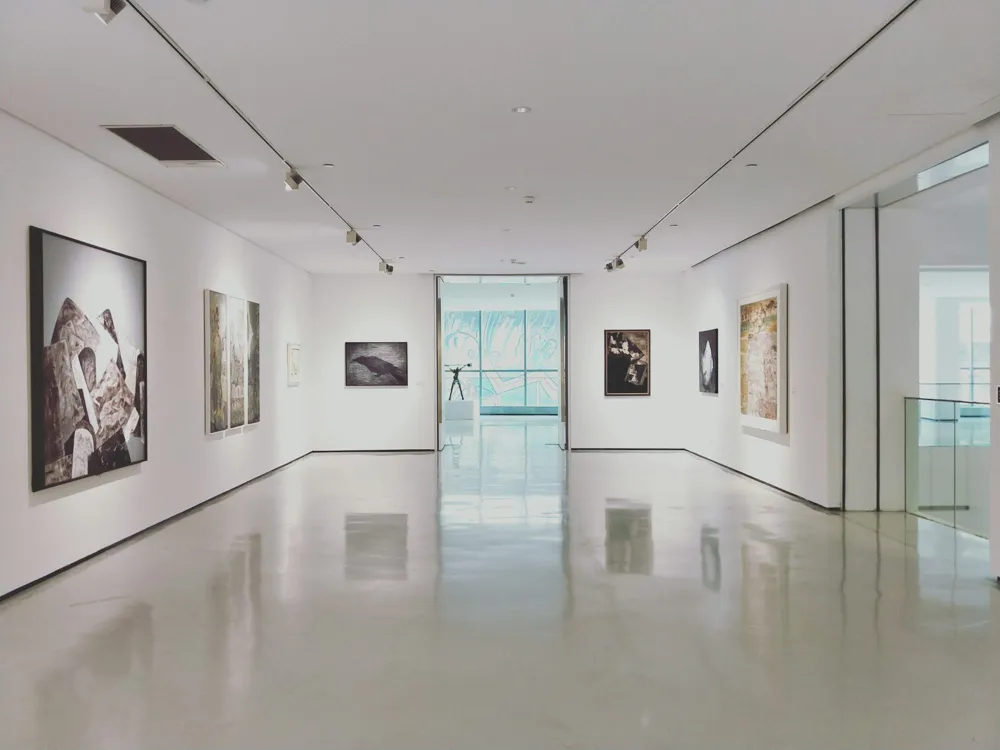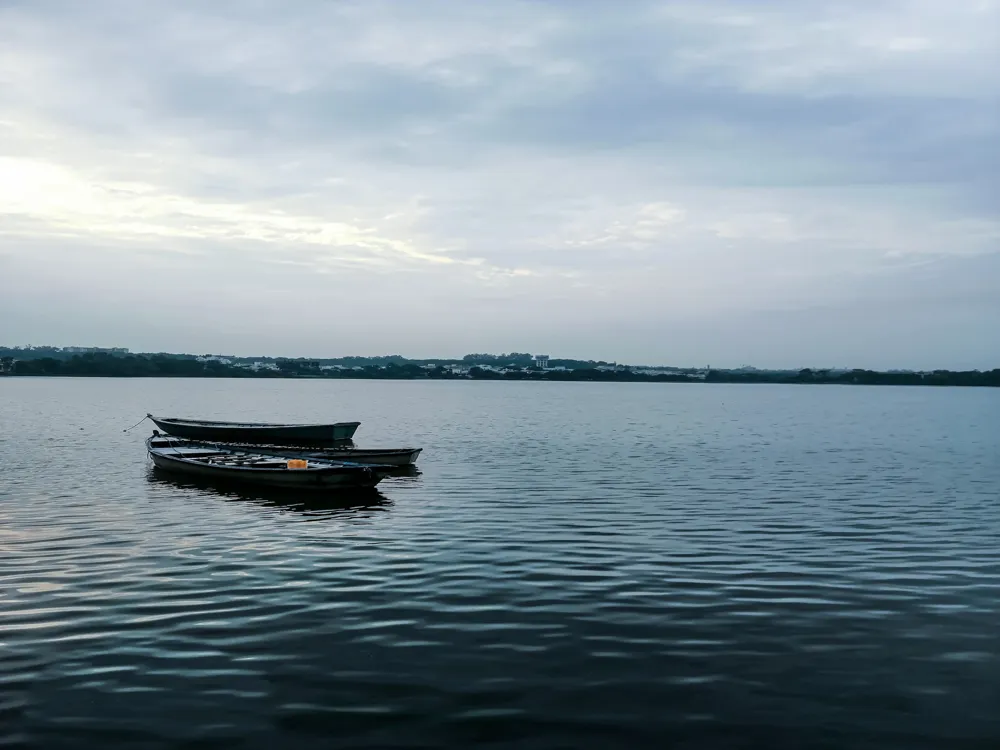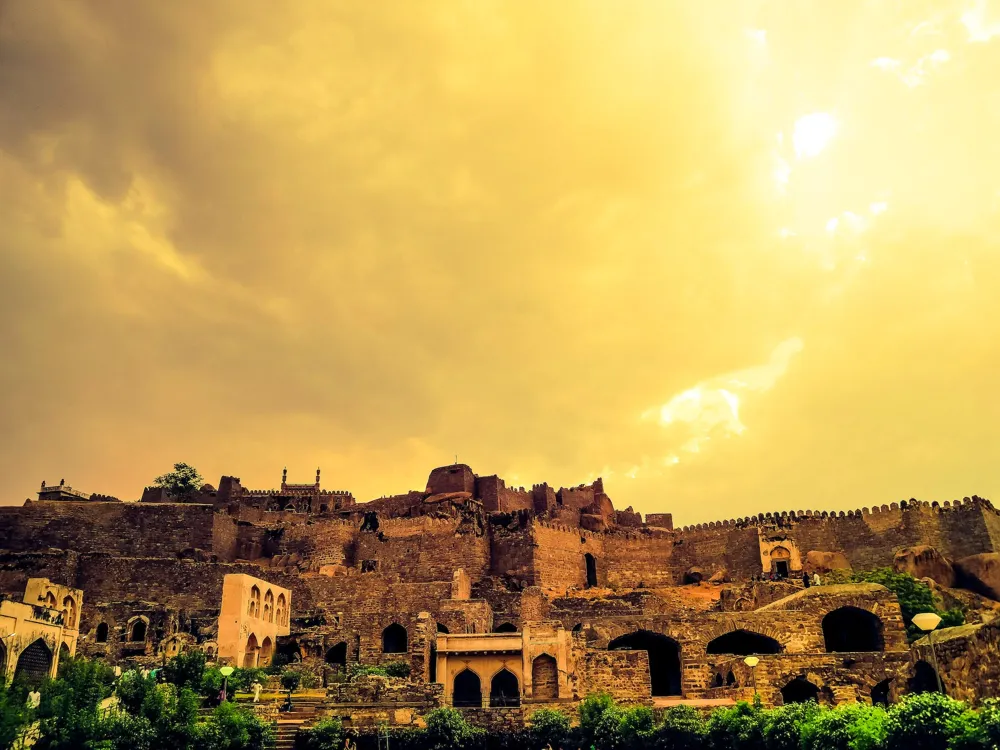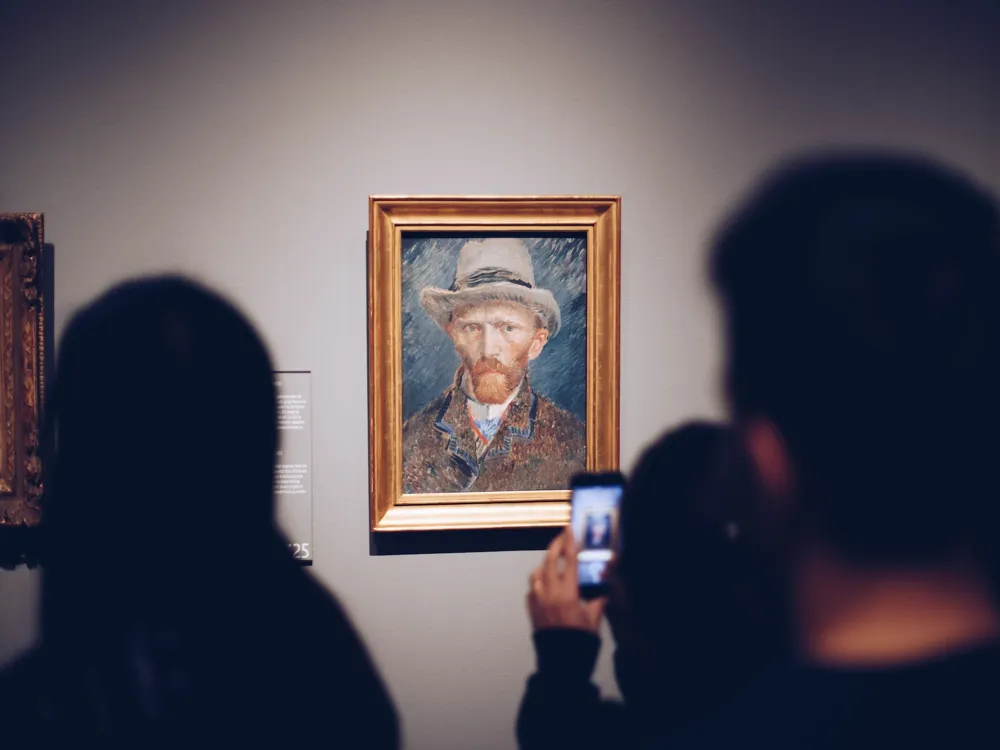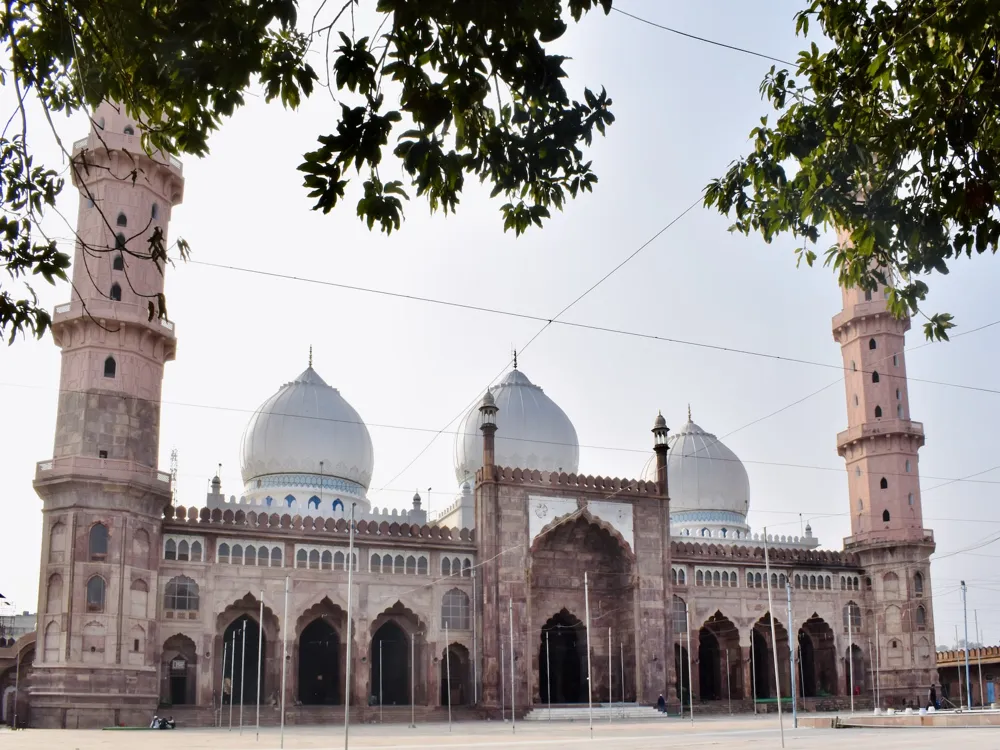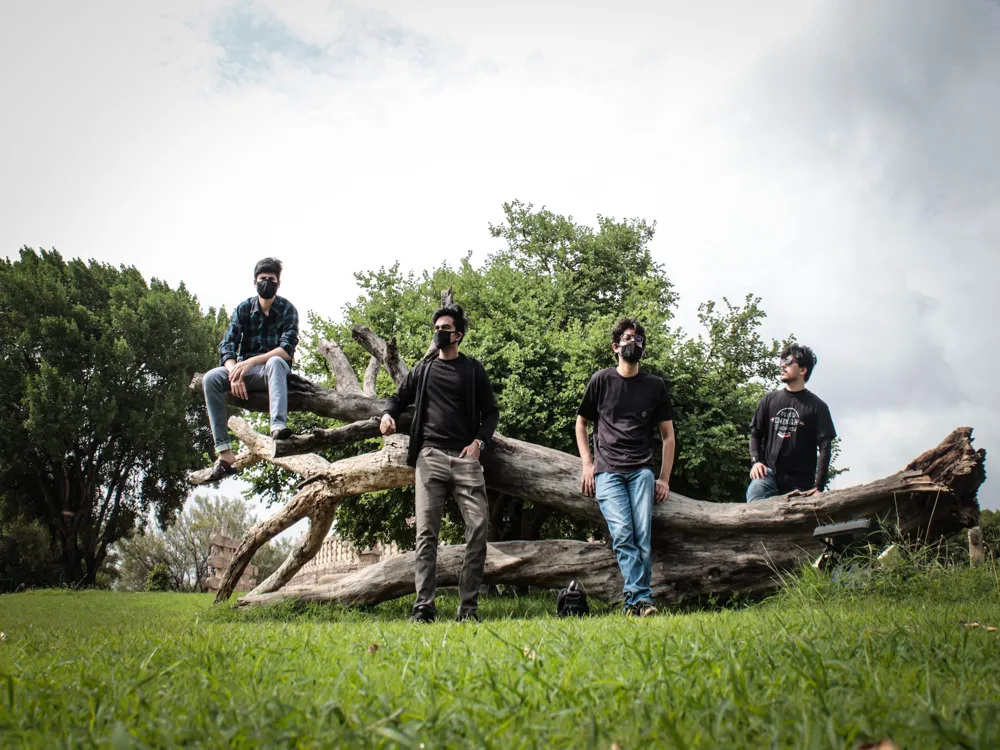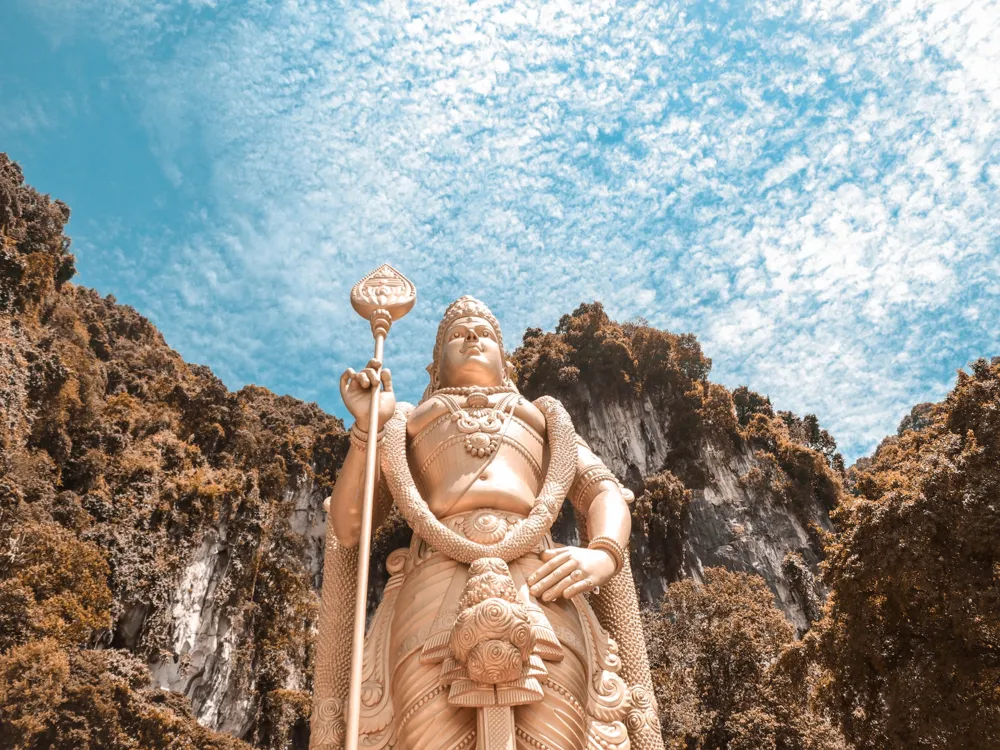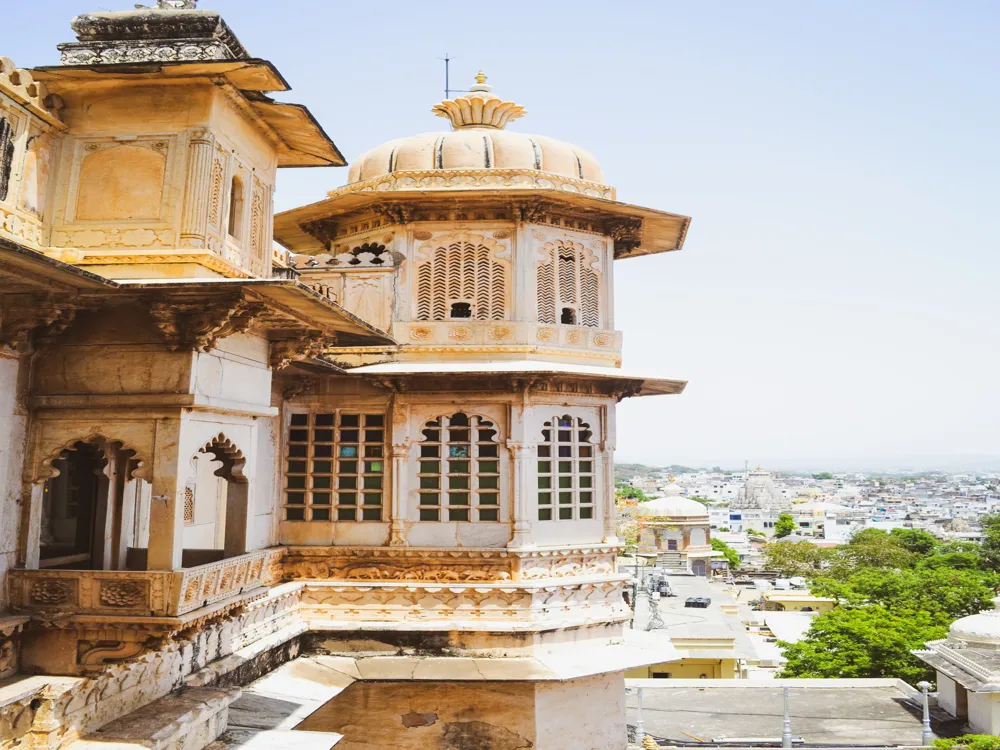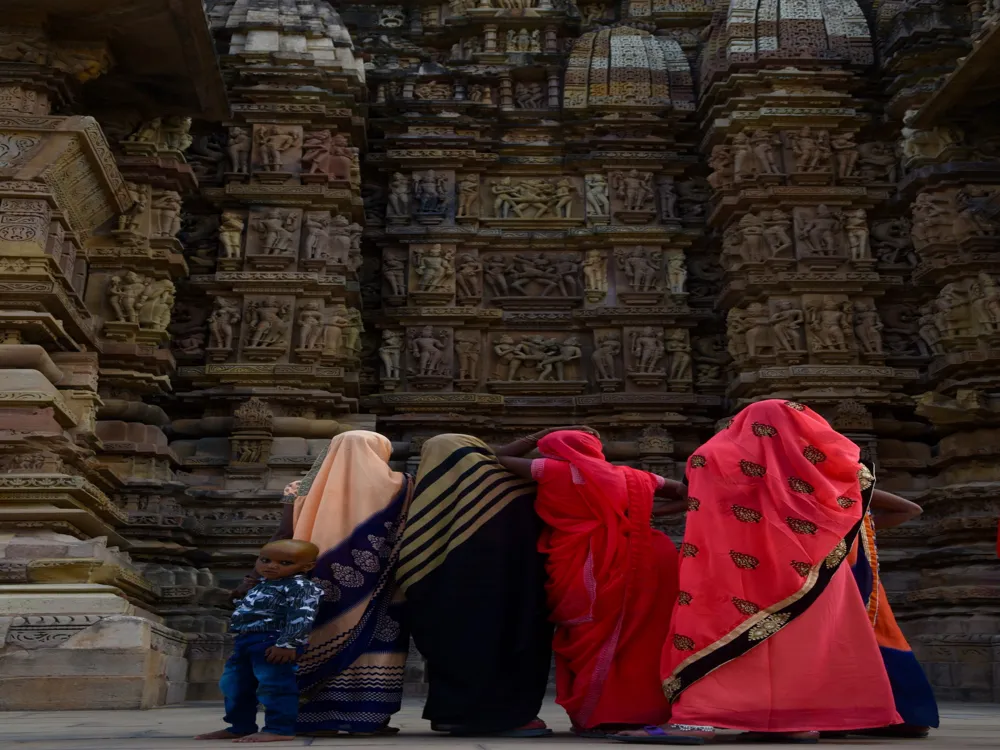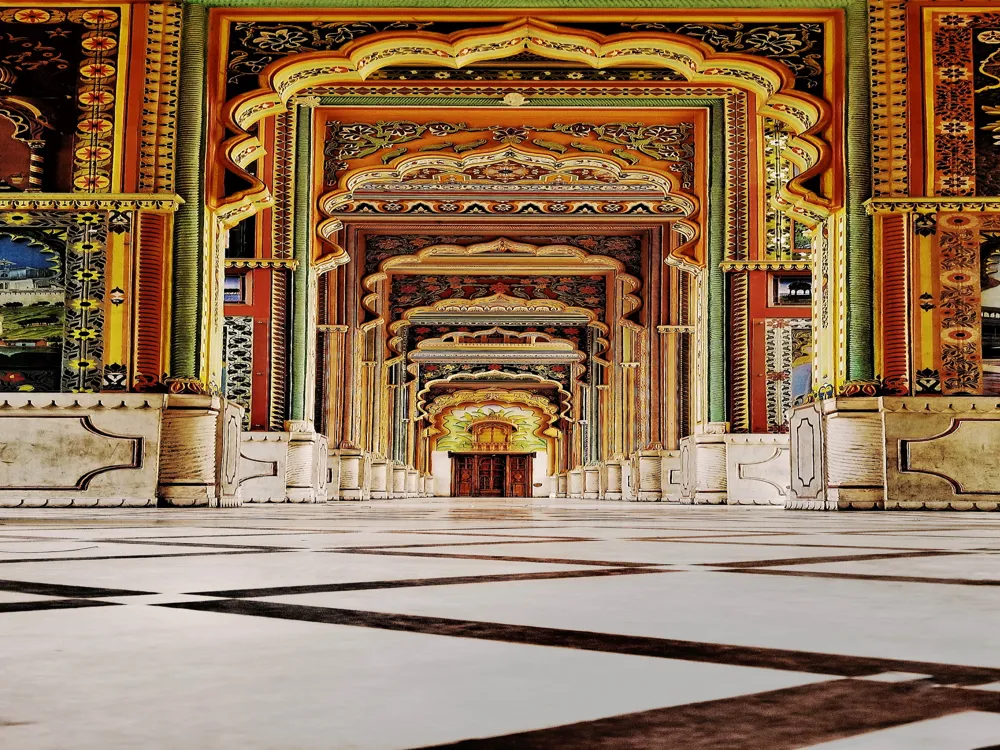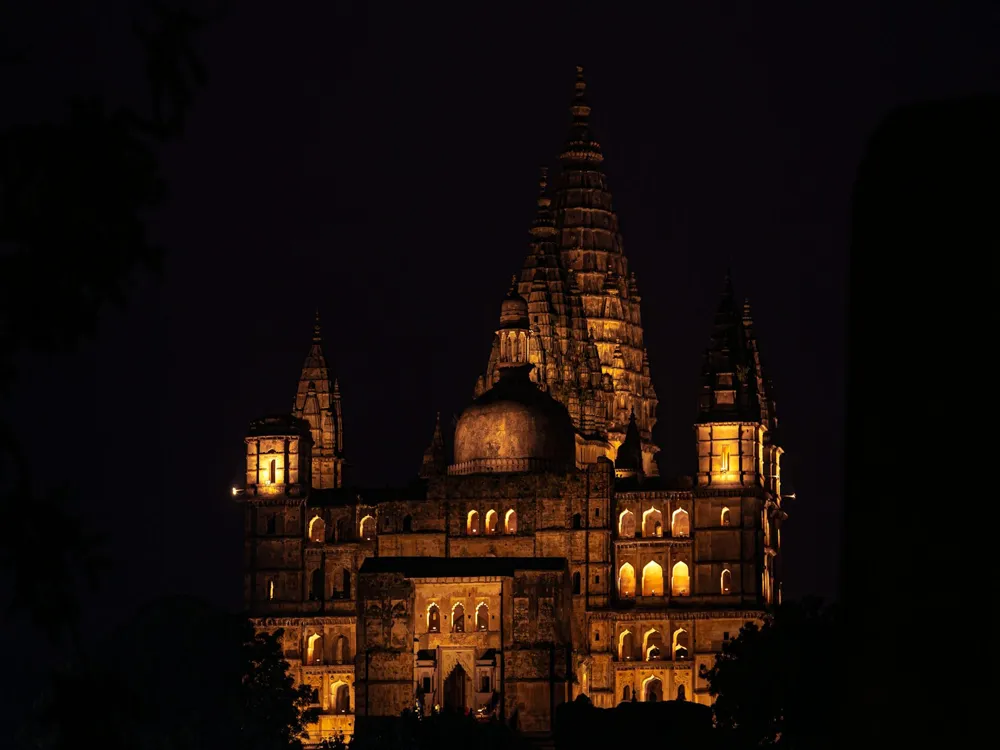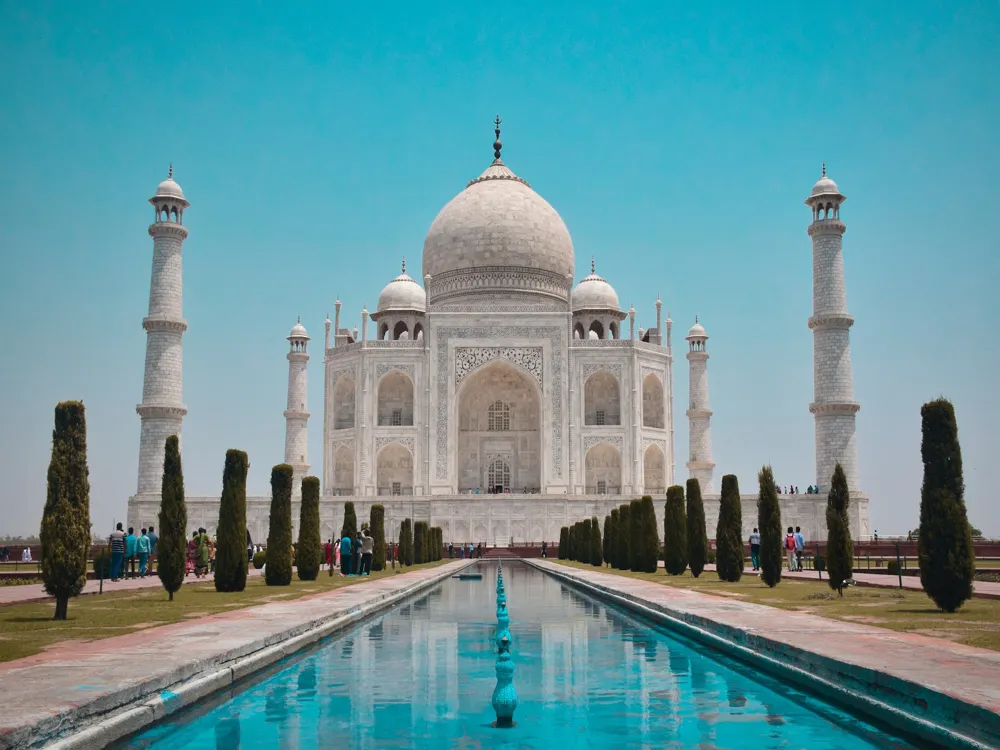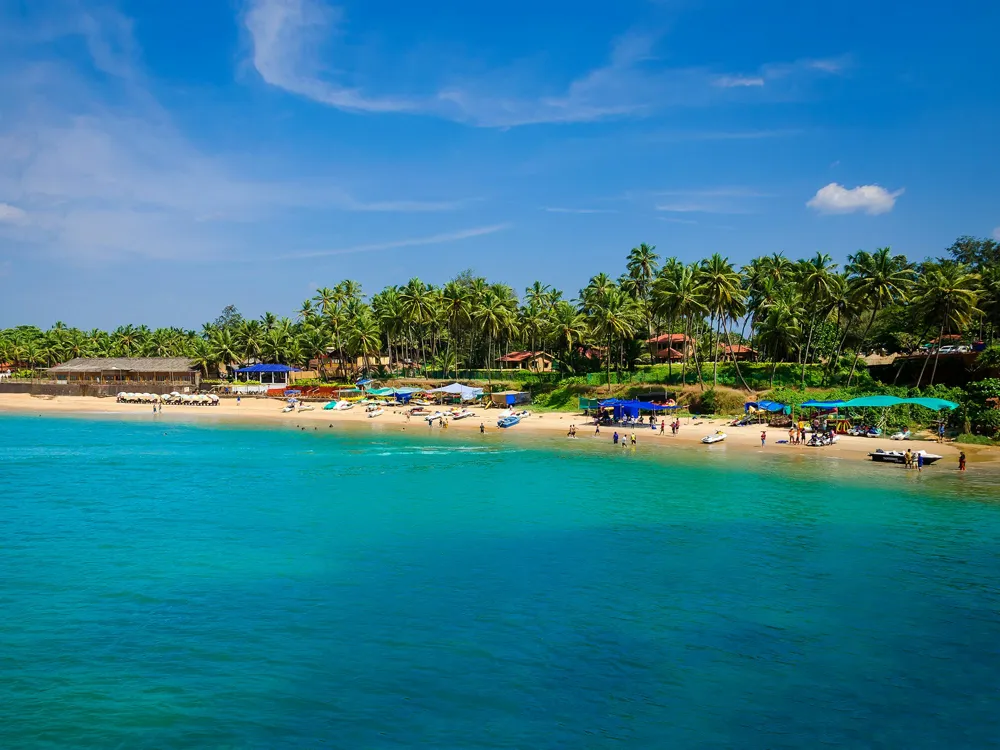The Moti Masjid of Bhopal, a splendid architectural gem, stands as a testament to the rich cultural and historical heritage of Madhya Pradesh, India. Constructed in 1860 by Sikandar Jehan, the daughter of Nawab Bahadur Shah Zafar, this mosque is often referred to as the 'Pearl Mosque' due to its striking white facade. It draws a parallel with the famous Jama Masjid in Delhi, illustrating the influence of Mughal architecture in its design. The mosque holds significant historical importance, being a symbol of the rule of Begums in Bhopal, who were known for their progressive rule and patronage of arts and culture. This mosque is not just a religious site but also a beacon of architectural brilliance. It features a grand prayer hall, adorned with intricately designed arches and an imposing façade. The Moti Masjid is characterized by its two dark-red towers with golden spikes, a unique feature that adds to its majestic appearance. The mosque’s courtyard, surrounded by a boundary wall, provides a serene and tranquil environment for prayer and contemplation. The Moti Masjid is more than just a place of worship; it's a symbol of the rich cultural tapestry of Bhopal and a relic of its historical past. The architectural design of Moti Masjid is a remarkable example of the fusion of Mughal and Indo-Islamic styles. The mosque's striking white facade is made from a combination of marble and limestone, giving it an ethereal glow, especially during the golden hours of dawn and dusk. Its large prayer hall, capable of accommodating hundreds of worshippers, features a series of arched windows that allow natural light to filter in, creating a play of light and shadow that adds to the spiritual ambiance. The mosque's minarets, each standing at a height of over 100 feet, are adorned with intricately carved motifs and Quranic inscriptions. These minarets not only serve as a visual focal point but also function as a traditional call to prayer. The interior of the mosque is equally impressive, with high ceilings adorned with geometric patterns and verses from the Quran, painstakingly painted by skilled artisans. The main prayer hall is flanked by smaller chambers, which were historically used for religious education and gatherings. The mosque's layout and design elements not only serve functional purposes but also symbolize the Islamic principles of unity, balance, and harmony. Visitors to Moti Masjid should adhere to a modest dress code. It is recommended to wear clothes that cover shoulders and knees. Visitors should also remove their shoes before entering the mosque. As a place of worship, it is important to maintain a respectful demeanor, keeping voices low and avoiding any actions that might disturb those in prayer. Photography is generally allowed in the mosque, but it is advisable to check for any specific restrictions. When taking photos, be respectful of worshippers and avoid using flash photography during prayer times. Capturing the architectural details can be a rewarding experience for photography enthusiasts. The best time to visit the Moti Masjid is during the early morning or late afternoon when the sun casts a warm glow on the mosque's facade. These times also tend to be less crowded, offering a more peaceful experience. Visitors should also be aware of prayer times, as the mosque might be closed to tourists during these periods. Moti Masjid is situated in the heart of Bhopal, making it easily accessible by various modes of transportation. Visitors can reach the mosque by local buses, auto-rickshaws, or taxis from any part of the city. For those preferring a more immersive experience, a walk through the old city lanes leading to the mosque can be quite enriching. Bhopal, being well-connected through rail and air, also facilitates easy access for outstation and international tourists. Read More:Overview of Moti Masjid, Bhopal
Architecture of Moti Masjid
Tips When Visiting Moti Masjid
Dress Code and Conduct
Photography
Best Time to Visit
How To Reach Moti Masjid
Moti Masjid
Bhopal
Madhya Pradesh
NaN onwards
View bhopal Packages
Weather :
Tags : Mosque
Timings : 6:00 AM - 7:00 PM
Time Required : 1-2 hours
Planning a Trip? Ask Your Question
Bhopal Travel Packages
View All Packages For Bhopal
Top Hotel Collections for Bhopal

Private Pool

Luxury Hotels

5-Star Hotels

Pet Friendly
Top Hotels Near Bhopal
Other Top Ranking Places In Bhopal
View All Places To Visit In bhopal
View bhopal Packages
Weather :
Tags : Mosque
Timings : 6:00 AM - 7:00 PM
Time Required : 1-2 hours
Planning a Trip? Ask Your Question
Bhopal Travel Packages
View All Packages For Bhopal
Top Hotel Collections for Bhopal

Private Pool

Luxury Hotels

5-Star Hotels

Pet Friendly







